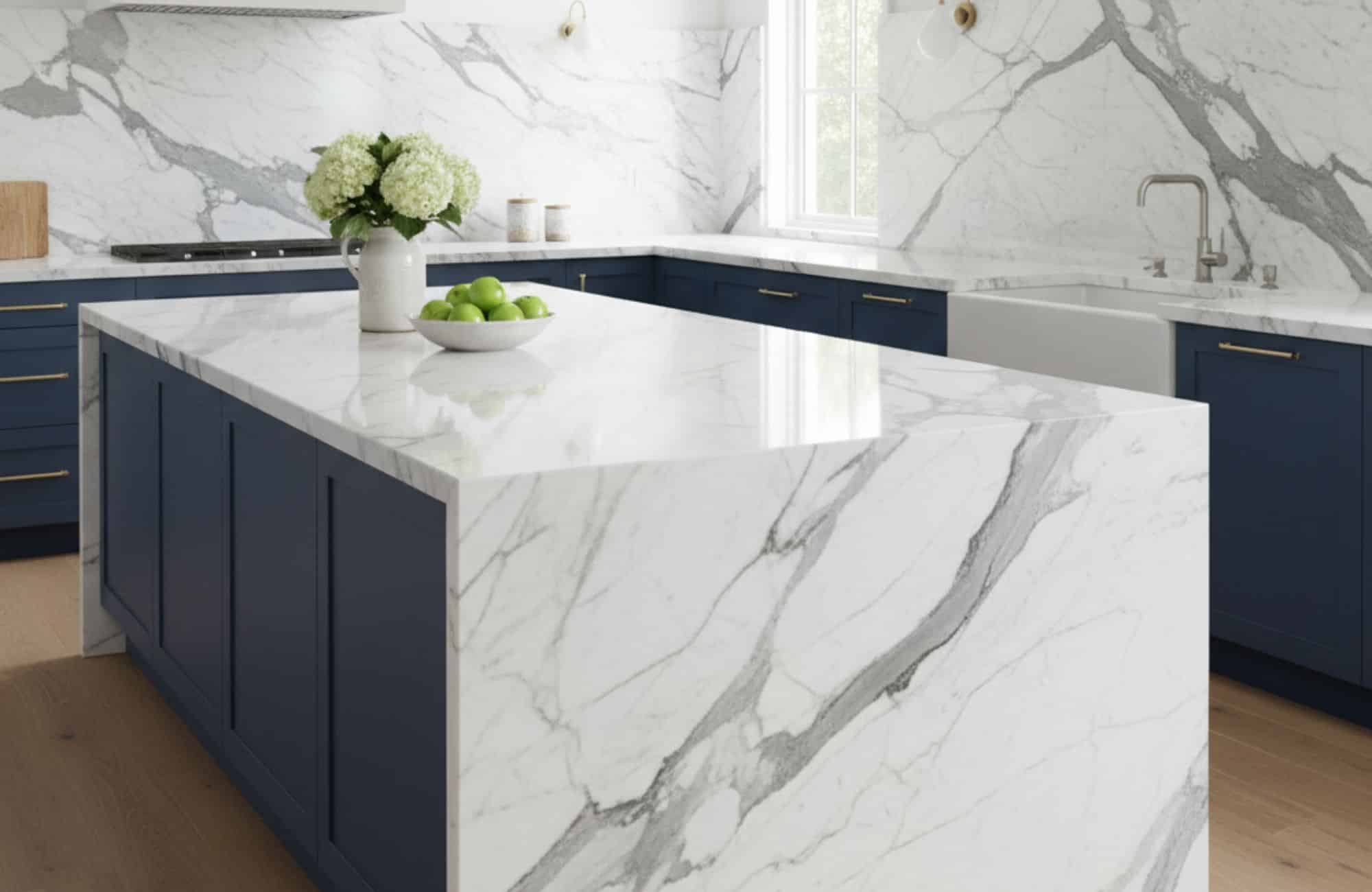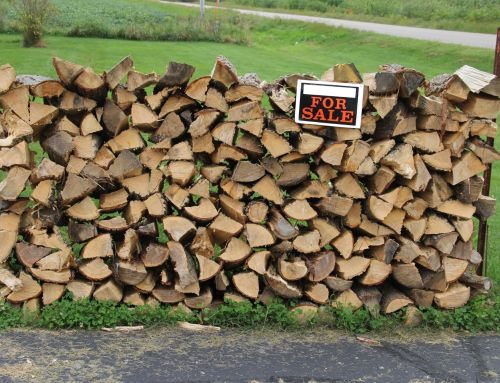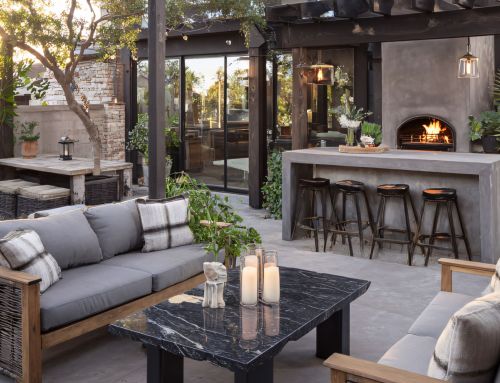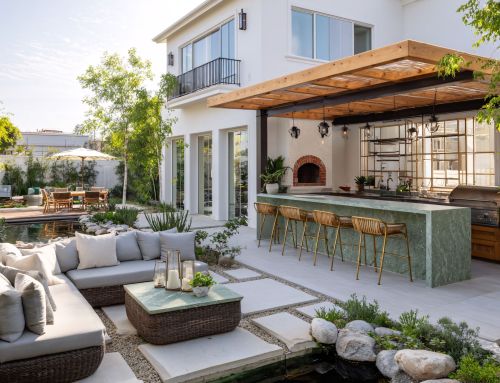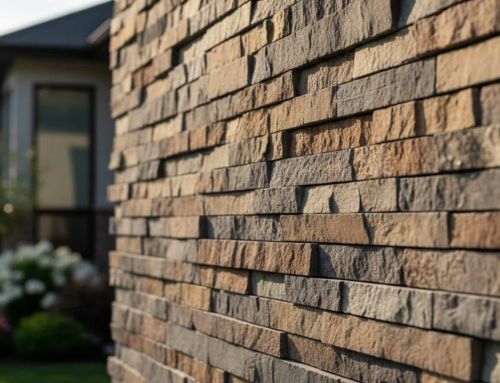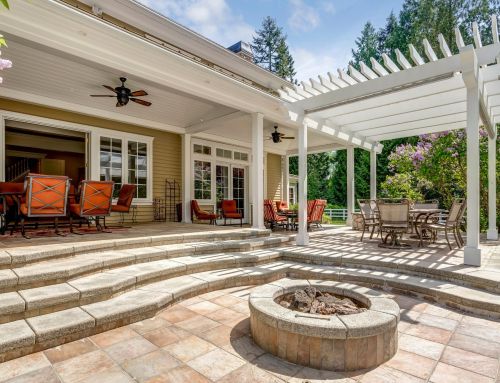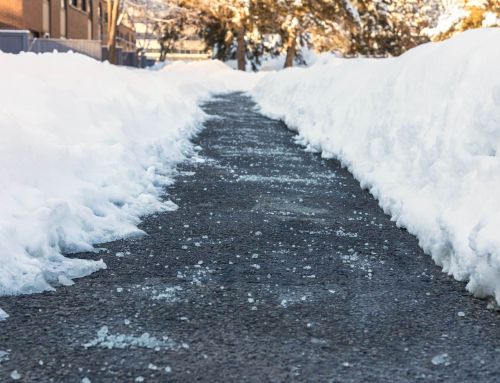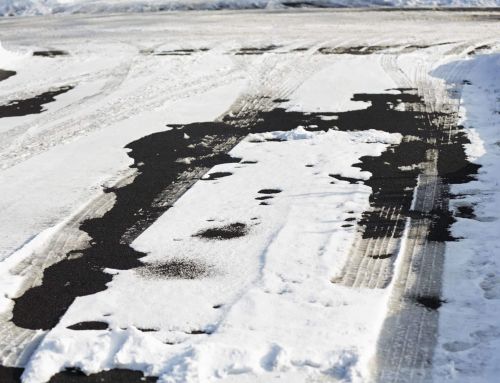Natural stone countertops are a popular choice in kitchens, bathrooms, and outdoor living spaces. Their timeless elegance, natural durability, and unique patterns set them apart. Every slab is hand-selected, showing variations in color, grains, and texture that create one-of-a-kind beauty. Homeowners value stone surfaces for their aesthetic appeal and for being heat-resistant, scratch-resistant, and stain-resistant.
At Old Station Outdoor & Landscape Supply, homeowners and contractors can explore quality natural stone slabs designed for strength, style, and long-term performance. Whether you’re planning your next project or considering an upgrade, understanding natural stone countertops is essential. This guide explains the different types of natural stone, their pros and cons, cost factors, and maintenance. It also includes expert insights to help you select the perfect material for your home or commercial space.
What Are Natural Stone Countertops?
Natural stone countertops are surfaces made from stone slabs quarried directly from the earth. Unlike engineered or composite materials, natural stone retains its unique mineral composition, texture, and colors. From dark grey granite to cream-toned limestone, no two slabs are ever the same.
These countertops are cut, shaped, and polished to highlight exotic patterns, translucent veining, or smooth textures. The result is a durable, elegant surface that homeowners appreciate for its longevity and luxury feel. Natural stone is dense and formed under intense geological processes, making it more heat-resistant and durable than other materials.
Natural stone countertops are used in:
- Kitchen countertops — designed to withstand high-traffic areas and resist heat from cooking.
- Bathroom vanities — where moisture resistance and easy maintenance are priorities.
- Fireplaces and accent walls — for timeless style and interior elegance.
- Outdoor kitchens — where freeze-thaw durability and custom fabrication matter most.
Types of Natural Stone Countertops
Choosing the right type of natural stone comes down to style, durability, and how you plan to use the surface. At Old Station Outdoor & Landscape Supply, homeowners and contractors can explore a wide selection of natural stone slabs, each offering unique patterns, colors, and qualities.
Granite Countertops
Granite is a popular choice for kitchens and bathrooms, valued for its dense composition, durability, and heat-resistant surface. Granite countertops feature unique grains and exotic patterns, offering style and strength. They are durable, stain-resistant with sealing, and available in many colors. However, granite needs sealing every 1–2 years and requires professional installation due to its weight. It is best suited for high-traffic areas like kitchens and busy family homes.
Marble Countertops
Marble has long been associated with luxury and elegance, offering translucent veining and a smooth, polished surface that adds sophistication to any room. It provides an iconic look, unique patterns, and luxury appeal. However, marble is softer and more porous than granite, so it can stain or scratch more easily. This softer surface requires frequent maintenance and is sensitive to acidic spills. Marble is best used in bathrooms, fireplace surrounds, and lower-traffic kitchens where style and elegance are desired.
Soapstone Countertops
Soapstone is a natural stone made largely of talc, giving it a softer, smoother texture with a dark, matte appearance. It is increasingly popular in modern and rustic designs. Soapstone is also highly heat-resistant, which makes it a practical option. It offers a smooth texture, heat-resistant qualities, and requires little sealing. However, this softer material can scratch or dent more easily. Soapstone is best used in kitchens with heavy cooking, labs, or spaces with a rustic appeal.
Quartzite Countertops
Quartzite is often confused with quartz, but it is a natural stone known for its hardness and marble-like beauty. It offers durability similar to granite and elegance comparable to marble, making it a luxury style option. Quartzite is extremely durable, resistant to heat and scratches, and ideal for long-term use. However, it comes with a higher cost and requires sealing to maintain performance. Quartzite is best used in high-end kitchens and bathrooms where durability and beauty are both priorities.
Limestone Countertops
Limestone features earthy tones, smooth textures, and a natural appeal, giving it a unique place in residential projects. Made primarily from calcium carbonate, it is softer than granite or quartzite. Limestone offers natural earth tones, smooth texture, and a unique appeal that homeowners value. However, this softer stone is prone to scratches and stains, requiring regular sealing and extra care. Limestone is best used in bathrooms, decorative surfaces, and accent walls where style matters more than heavy durability.
Bluestone & Outdoor Stone Options
Bluestone, slate, and other natural stones are excellent for outdoor kitchens, patios, and fireplaces due to their durability. These stones are shaped into slabs and blocks that withstand freeze-thaw cycles common in New England. They are durable in outdoor settings, weather-resistant, and provide a natural outdoor aesthetic. However, they offer a limited color range in gray, blue, or green and require sealing for longevity. Bluestone and similar stones are best used in outdoor kitchens, patios, and garden walls.
Comparison Table
| Stone Type | Durability | Maintenance Needs | Cost (per sq. ft.) | Best For |
|---|---|---|---|---|
| Granite | Very High | Low-Medium | $50–$120 | Kitchens |
| Marble | Medium | High | $60–$150 | Bathrooms |
| Soapstone | Medium | Low | $70–$120 | Rustic Kitchens |
| Quartzite | Very High | Medium | $80–$200 | Luxury Kitchens |
| Limestone | Low-Medium | High | $55–$125 | Bathrooms, Walls |
| Bluestone | High (outdoor) | Medium | $50–$100 | Outdoor Kitchens |
Pros and Cons of Natural Stone Countertops
Before committing to natural stone, it’s important to weigh the advantages. Natural stone countertops are valued in residential spaces for timeless beauty, offering unique patterns and colors no other material can replicate. They provide durability, as granite, quartzite, and soapstone stand up well to high-traffic areas. Natural stone also delivers heat resistance, creating an ideal option for kitchens and fireplaces. Furthermore, installing stone surfaces often boosts property value and enhances home resale appeal.
At the same time, natural stone requires care and attention. The cost is higher than laminate or other engineered options. Maintenance is necessary, as stones like marble and limestone require sealing and more frequent care. Porosity is another concern, since certain stones stain if not maintained properly. By understanding these trade-offs, homeowners can select the perfect material that balances style, durability, and maintenance for their project.
Cost of Natural Stone Countertops
The cost of natural stone countertops varies based on the stone type, thickness, fabrication, and installation.
- Granite: $50–$120 per sq. ft. installed
- Marble: $60–$150 per sq. ft. installed
- Soapstone: $70–$120 per sq. ft. installed
- Quartzite: $80–$200 per sq. ft. installed
- Limestone: $55–$125 per sq. ft. installed
- Bluestone/Outdoor Stones: $50–$100 per sq. ft. installed
Custom fabrication, edge profiles, and block finishes may add to the total. While natural stone is a larger upfront investment, its durability and longevity often make it more cost-effective over time compared to other material options. However, it is still better to consult a local provider like Old Station Outdoor & Landscape Supply for an accurate estimate based on your project needs.
Installation & Custom Fabrication Insights
Unlike manufactured countertops, natural stone must be cut, shaped, and polished with precision. Professional installation ensures slabs fit perfectly with cabinets, walls, and appliances. Custom stone fabrication services provide flexibility for homeowners and contractors, from polished granite slabs to shaped limestone vanities. Expert fabrication ensures accuracy, durability, and elegance for every project.
Homeowners can also benefit from contractor referral programs that connect them with trusted installers who maintain high-quality standards. For contractors and commercial projects, a reliable supply chain and on-time delivery are essential to keep projects on schedule.
Caring for Natural Stone Countertops
Caring for natural stone countertops is simple if you follow the right maintenance process. Most mineral spring stones require sealing to protect against stains. Granite and quartzite may only need sealing every 1–2 years, while marble and limestone benefit from more frequent care.
Care Checklist
- Daily: Wipe with mild soap and water; avoid harsh chemicals.
- Monthly: Inspect for scratches or stains, reseal if necessary.
- Annually: Professional deep clean and resealing for softer stones.
By following these steps, natural stone countertops can last for decades. With proper care, they maintain their polished appearance over time.
Natural Stone Countertops vs. Alternatives
Natural stone is often compared with quartz, laminate, and other surfaces. Quartz is an engineered stone with a consistent appearance and low maintenance, but it lacks natural variation. Laminate is budget-friendly, though it is less durable and less heat-resistant. Solid surface options like Corian are easy to maintain, but they scratch easily and lack the luxury of natural stone.
For homeowners prioritizing durability, luxury, and uniqueness, natural stone countertops remain a top choice. They combine timeless appeal, long-term performance, and unique patterns that no other material can replicate, resulting in an excellent investment.
Conclusion
Natural stone countertops are more than just a surface; they are an investment in style, durability, and home value. With unique patterns, timeless appeal, and long-lasting performance, they stand apart from other materials when maintained properly and installed by trusted experts.
At Old Station Outdoor & Landscape Supply in Norton, MA, we provide natural stone slabs, custom fabrication, and reliable delivery services. Contact us today to explore our selection and start your next project with guidance from our experienced team.
FAQs
Are granite countertops natural stone?
Yes, granite countertops are natural stone, formed from dense igneous rock quarried directly from the earth.
Are quartz countertops man-made or natural stone?
Quartz countertops are man-made, engineered from crushed quartz mixed with resin, unlike natural stone slabs such as granite or marble.
How to clean natural stone countertops?
To clean natural stone countertops, use mild soap and warm water, avoiding harsh or acidic cleaning products.
How to remove stains from natural stone countertops?
To remove stains from natural stone countertops, apply a baking soda poultice or specialized stone cleaner, then rinse thoroughly.

